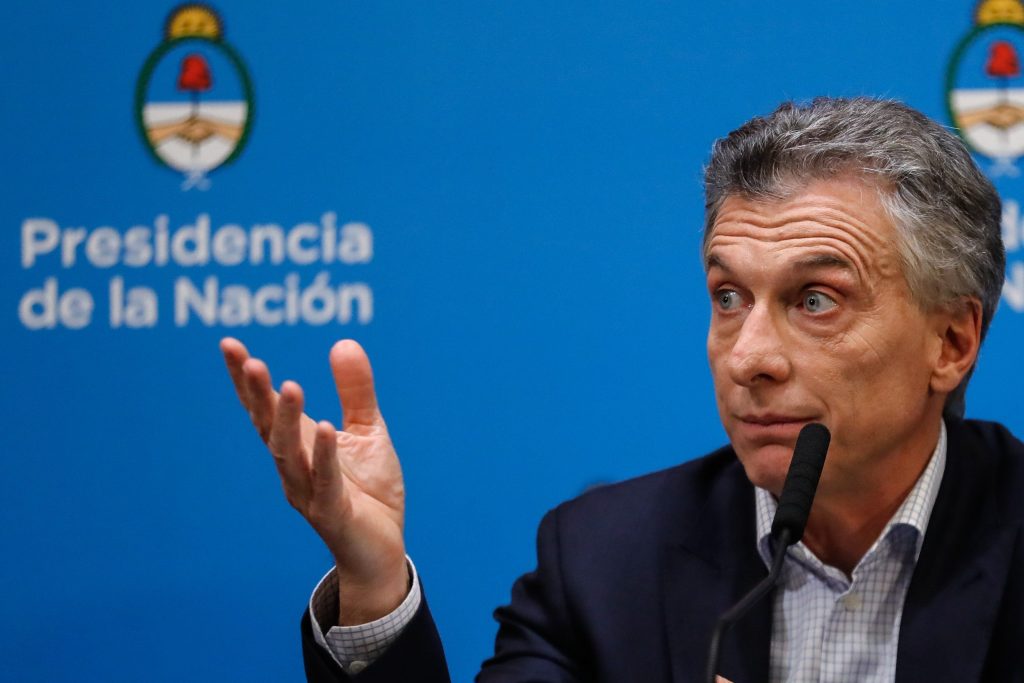
In last night’s presentation, after losing to Alberto Fernandez by 47.65 % against 32.08 %, Mauricio Macri suffered defeat. He recognized a terrible election, and before the official data was available, he spoke of more than ten points of difference with the Frente de Todos. However, he persevered with the prospect of competing in October and seeking a comeback.
The numbers show that this is not very likely: there was a high percentage of the electorate voting (75%, so you would not expect a significant absentee vote) and the candidates more akin to him than to Kirchnerism, all together, add up to 13.03%. If the entirety of those voters decides to support the president in the next round, he still lacks two percentage points. The Frente de Izquierda has 2.86% but not even the most optimistic of the Macrists could expect any votes from them.
The same will happen in October, and the ballot will be divided between Blanco and Kirchnerism. Even the Scioli Zannini duo could not achieve the full flow of the hard left in the second lap. Kirchnerism also blamed the “trotskos” or the far left for Macri’s brief victory four years ago.
Although Macri did not acknowledge receipt last night, many expected a different word this afternoon. The executive branch announced a press conference at 4: 00 p.m. and, once again, the country’s eyes were on Macri who was accompanied by his vice-presidential candidate, the Peronist Miguel Angel Pichetto.
Although it may seem difficult to understand, the leader of Juntos por el Cambio maintained the same speech that “no candidates were elected,” “this was a primary,” “we’re going to do what we can to reverse the situation,” and “it’s not all settled.” He did say “Kirchnerism,” “Kirchnerism,” “Kirchnerism,” “Kirchnerism,” over and over again. Far from self-criticism over the failed “gradualist” economic plan, the Argentine president blamed the opposition, which he now called “Kirchnerism.”
When explaining the exchange run that took place today in Argentina, Macri associated it with Kirchner’s image in the world and yesterday’s result. In short, nothing was his fault. Everything was the responsibility of Alberto, Cristina, and their voters. “The change continues, we are going to reverse yesterday’s election,” he said.
Of course, journalists asked about the possibility of a “coalition-government,” an “emergency cabinet,” or a “transition plan.” But Macri ruled out all options and said he shouldn’t worry about anything other than winning in October.
However, given yesterday’s numbers and today’s crisis, this does not seem to respond to much of what is happening in reality. The circumstance presents two possibilities on the table: the Argentine president has lost his mind and is entirely out of place, or he has called the winner of the PASO (primary, open, simultaneous and obligatory) for an emergency program, and he has refused to begin a dialogue for an orderly transition. Both would be unfortunate news for the country.
Knowing the obstinacy of Macrism and the unwillingness of Peronism (but, above all, the unyielding nature of Kirchnerism), neither option seems far-fetched.
The “miracle” plan outside the agenda
Everything seems to indicate that the Government is finished and that Macri will lose with Alberto Fernandez in the next round. However, technically, there is a (very remote) possibility, not for the ruling party to rise and triumph, but for Kirchnerism not to win. This has to do with the idea that the North American advisor Dick Morris put forward during his last visit to the country.
Bill Clinton’s former advisor warned that Macri might “not be the right guy” to beat the Fernandez. His words went unnoticed as his candidate; economist Jose Luis Espert did not win more than 2% of the vote. However, his reasoning in the face of polarization could be taken into account in a proposal with epic characteristics. Not for the liberal candidate, but for the third in question: Roberto Lavagna, who won 8.22% of the votes.
In the hypothetical (unlikely) case that Macri desists from his candidacy and supports only the legislative candidates in his space, a recommendation to vote for Lavagna, the former economy minister, could take “everything.” He could get the Macrist vote as well as votes for Gomez Centurion and Espert.
It is a scenario that could happen in the case that the Peronist economist could take away some votes from Fernandez: people who would never vote for Macri but would consider a third option like Lavagna. This calculation, which is extravagant, complicated, and unlikely, has a much better chance of success than the insistence of the current president’s candidacy. So far, the plan is not on the agenda.
 Versión Español
Versión Español












